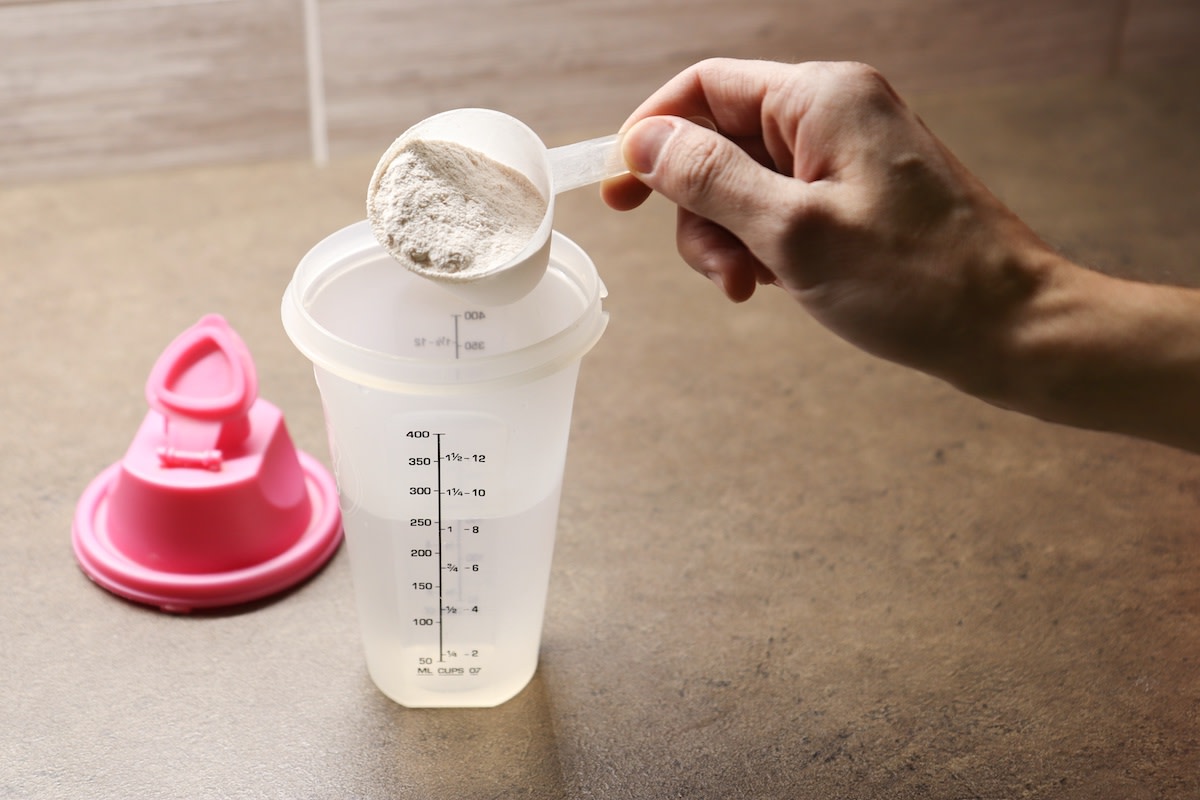Casein vs Whey Protein: Differences and Similarities
Written by MasterClass
Last updated: Sep 3, 2021 • 3 min read
Both casein and whey are types of protein supplements that manufacturers produce in powdered form. Consumers typically mix these powders into beverages, or they sometimes incorporate them into other foods.
Learn From the Best
What Is Casein Protein?
Casein protein is a protein supplement that, like whey protein, manufacturers produce in powder form. Following ingestion, casein has a slow release, with a digestion rate of approximately three to four hours.
Bodybuilders who are strength training or performing resistance training—both activities that depend upon muscle strength, which can be facilitated by a diet high in protein—sometimes use casein protein as a pre-workout supplement. Foods that are high in protein can also provide satiety for long periods of time, so some people choose to use casein as a complete protein source in place of, or between, meals.
What Is Whey Protein?
Whey protein concentrate is a protein supplement that is fast-acting, as your body can absorb its essential amino acids and dairy proteins in about twenty minutes. It’s easier to mix whey protein powder with liquids than it is casein protein, and consumers commonly consider whey protein to have a better texture and taste.
High in protein—one of the body’s building blocks for muscle gain—whey can contribute to muscle growth, as the body requires large amounts of protein for the development of muscle mass. Whey protein is popular among members of the fitness community because manufacturers market types that are low in carbohydrates and designed as dietary options for people who want to increase their protein intake while they work toward weight loss.
Casein vs. Whey Protein
Casein protein and whey protein are similar, but there are also key differences between the two. Here are some points of consideration:
- Absorption rate: Whey protein usually has a higher rate of digestibility than casein protein—which is slow-digesting—and typically a faster absorption rate.
- Calcium: Both forms of protein contain calcium, a nutrient that contributes to bone strength and other processes in the body.
- Form: Casein protein and whey protein are both available as powders and, depending on the brand, might be plain or come in flavors like vanilla or chocolate. Alternatively, some companies sell protein shakes that already include whey or casein as ingredients.
- Protein: Both whey and casein have high amino acid levels and are anabolic milk proteins, which are what your body uses as the building blocks of lean muscle mass. Protein can also be crucial to muscle recovery. For example, during a difficult workout, your body experiences muscle breakdown—whey or casein can serve as sources of protein, delivering branched-chain amino acids (BCAAs) that can help your muscle tissues repair themselves.
- Satiety: The body generally needs more time to break down casein than it does whey powder. As a result, casein protein powder generally provides a higher level of satiety, and consumers therefore use casein more frequently as a meal replacement. Whey, on the other hand, can contribute to a high protein intake, but it will generally not make a person feel as full for as long.
- Source: Whey and casein protein are both milk proteins that come from cow’s milk, taken from the castoffs of the cheese-making process. When you’re shopping for a protein supplement, it can be advisable to select a quality protein—often this means researching the manufacturer’s source or sources.
Allergies to Casein or Whey Protein
If you are allergic to dairy products like ice cream or cottage cheese; have trouble digesting lactose; have lactose intolerance or a milk allergy; or develop any kind of an allergic reaction from dairy consumption, then you should seek out medical advice from your doctor prior to taking casein or whey protein dietary supplements. In the case of a casein allergy, there are casein-free alternatives for supplementation.
Want to Dive Deeper Into Your Wellness Journey?
Throw on some athleisure, fire up a MasterClass Annual Membership, and get ready to sweat it out with exclusive instructional videos from Nike Master Trainer and GQ fitness specialist Joe Holder. Want to improve your cardiovascular endurance? Give Joe’s HIIT workout a go. Trying to get a little swole? He’s got a strength training workout for that. From fitness tips to nutrition hacks, Joe will have you feeling healthier in no time.
